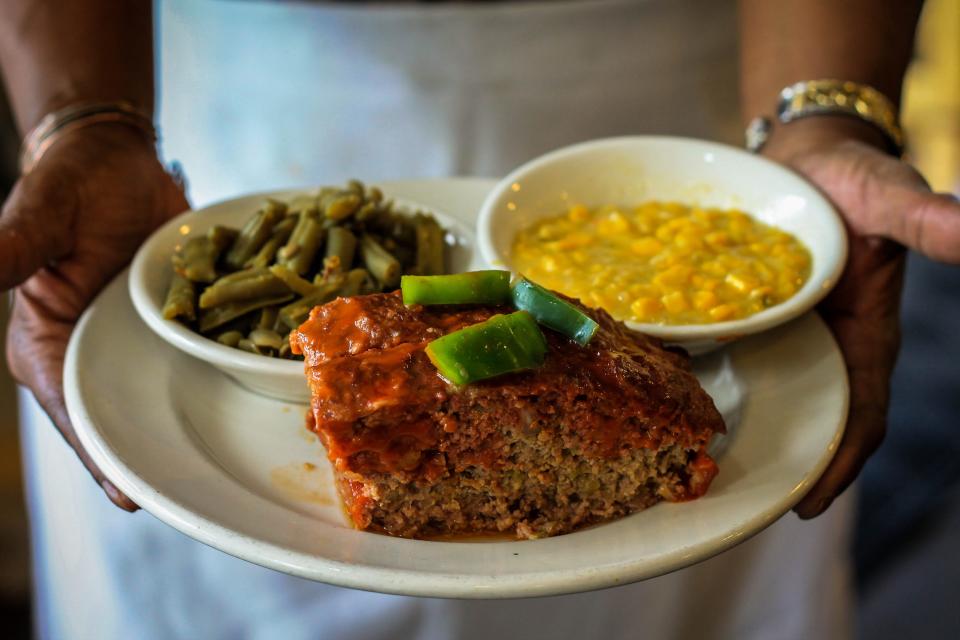TikTokers are sick of seeing ethnic foods get a bad rap: 'We need to redefine healthy'
Growing up “as a brown kid in the West,” Jon Kung always felt like he was apologizing for the foods he ate, but the issue really became prominent for him in 2019 when white restaurateurs opened a "clean" Chinese food establishment in New York.
At the time, owner and Manhattan nutritionist Arielle Haspel faced backlash for marketing the restaurant's lo mein as a dish that wouldn't make people feel “bloated or icky.”
To combat the notion that Chinese food is unhealthy, Kung turned to TikTok. He is among several content creators who are using the platform to dispel myths about cultural foods.
"Growing up in the West, we're conditioned to assume that certain foods are healthier than others, and certain foods – especially ethnic foods – tend to be unhealthy," Kung says in his video as he illustrates that a plain wrap contains as many calories as a serving of plain noodles.
As TikTok user @lensaskitchen put it in one video: "I never felt like I could eat the cultural foods I grew up on and also be healthy … I can't log a lot of the foods I eat into fitness apps. For so long we've been taught this very narrow and Eurocentric view of what eating healthy means all while being taught that cultural foods and soul foods are unhealthy even though they're usually packed with nutrients."
Skinny shaming is real.But experts warn against comparing it to fat shaming.
And in a TikTok video last week, Kim Saira labeled James Corden's "Spill Your Guts or Fill Your Guts" segment as "racist" and started a petition calling on the host to remove this part of his show as it includes some Asian delicacies that are portrayed in a negative light.
Experts agree ethnic foods often get a bad rap and they believe a necessary remedy is to increase diversity among the influencers in the nutrition and wellness space.
How do we correct misconceptions about cultural foods?
Kung says many people who are seen as the experts in the nutrition world likely "have no exposure to other cultures." Thus, ethnic foods are left out of the conversation when those authorities are dishing out advice on healthy eating.
Registered dietitian Marisa Moore says there is a lot of work to be done to improve the way we view culturally diverse foods.
"This is not a one-time course," she notes. "It's an ongoing learning process that takes time."
Tamar Samuels, also a registered dietitian, says progress with body acceptance will also move the food industry forward.
"What is considered healthy is often associated with thinness, and thinness is often associated with whiteness," Samuels says. "We need to redefine what healthy looks like to include different body shapes, colors and sizes."
The word "healthy" is not as simple as just counting calories and fat content, Moore says. "There is no one size fits all answer."
Kung's video has been viewed more than 4 million times, and he says people from marginalized backgrounds have thanked him for bringing the issue to light.
"The only people that have been telling me that this is not an issue and that this doesn't exist, have been white guys," he adds.
Samuels says while foods that are staples in many cultures like white rice may not be healthy from a nutritional standpoint, it's about finding a balance and "enjoying these foods without guilt because they are important to your family and your culture."
Moore adds, "I think about the collard greens and cornbread, peas and rice, okra and tomatoes, sweet potatoes and many other foods I love and that take me back to my grandmother's kitchen. These foods are not only healthy and nourishing but they are a key part of my heritage and bring me and my family immense joy."

It was a mentality Kung himself had to break out of, and during his fitness journey he realized he could still eat Chinese food while maintaining a stricter diet to meet his goals.
"I can eat foods of my own culture, even though I am putting myself under a stricter diet. There is no difference between a wrap, which is just gentrified Mexican food, and a bowl of noodles," Kung says. "These guises of ethnic food lead you to believe like, 'Oh, it's a bowl of ramen, it's not good for you.' Noodles can be good for you."
There's been a rise in anti-Asian attacks. Here's how to be an ally to the community.
This article originally appeared on USA TODAY: TikTok food videos aim to combat unhealthy myth about ethnic cuisine
